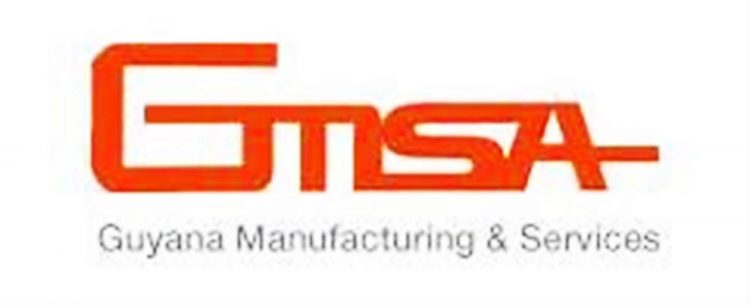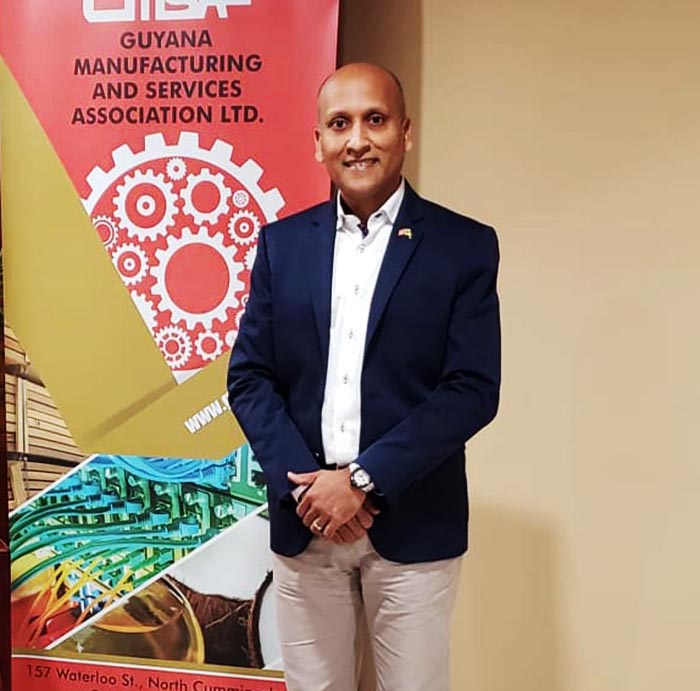President of the Guyana Manufacturing and Services Association (GMSA), Rafeek Khan has told the Stabroek Business that the envisaged gas to shore project, part of the wider envisaged maximizing of the country’s oil and gas resources could represent a game-changing breakthrough for the country’s manufacturing sector, reaching to the very heart of one of the key issues that have affected manufacturing in Guyana.
“The challenge for local manufacturing has always been the high cost of energy. The gas to shore project, once completed, will significantly reduce energy costs for our local manufacturers which can have an uptake in the sector,” Khan told the Stabroek Business recently. The full text of the interview will be published in the Stabroek Business’ sister publication, The Guyana Review, later in January. Meanwhile, Khan said in response to a question posed by the Stabroek Business that what the Association sees as the country’s “high corporate tax rate of 45% (compared with 25% in Jamaica and Trinidad and Tobago)” should be ‘re-evaluated’ in order to “encourage growth of the manufacturing sector.”

The GMSA President provided no details on the extent to which local small businesses that are members of the Association had responded to this recommendation. The interview with the GMSA President, which comprised questions submitted by the Stabroek Business, to which he responded in writing, focused on a range of issues, including the role of local Business Support Organizations (BSO’s) in impacting the ongoing transformation of the country’s economy. Khan told the Stabroek Business that the GMSA has been seeking to foster the environment “for collaboration engagements with the public sector”, adding that the Association had also been “encouraging the formation of consortia among its membership as the business environment is evolving.”
Partnerships, Khan said, “allow businesses to share risk, increase financing options and improve their productive capacities to cater for the increasing demand in several of our subsectors.” Not previously known for sharing their substantive day to day agendas with the media, the local business support organizations, particularly the Georgetown Chamber of Commerce and Industry (GCCI) and the GMSA have been far more visible since the emergence of oil and gas as part of the local business agenda. The Stabroek Business had earlier published a similar type of interview with President of the Georgetown Chamber of Commerce and Industry, Timothy Tucker.

Khan told the Stabroek Business that the GMSA’s interest in the development of the country’s oil and gas sector had also derived from “the challenge for local manufacturing” resulting from “the high cost of energy”. “The gas to shore project once completed will significantly reduce energy costs for our local manufacturers which can have an uptake in the sector,” he added. Khan, who served as the ‘lead’ GMSA official at the June 2022 Barbados Agro Fest, alluded to the role which the local agro processing sector had played pointing to the collaboration between the GMSA and local agro processors in the staging of the UNCAPPED event and platform at the National Stadium from April 30 – May 1 last year.
Describing agro processors as “very important stakeholders of ours,” Khan stated during the interview that the GMSA’s relationship with the sub-sector “allows agro-processors to display their products on an online platform and improve their visibility. Currently, members are uploading and stocking the website with their products. In the coming months we are looking to fully integrate this platform with online payment,” he added. And in response to a question from the Stabroek Business, Khan said that with the diversification of the economy and the development of the non-oil sectors being pivotal, the GMSA “would support a short-term packaging subsidy” that would allow “many of these manufacturing companies locally to have some increased cash flow which can be used for expansion of their market share.”
At the same time Khan said that the GMSA “applauds the government for its support towards the existing Central Packaging Facility and the Parika agro-packaging facility.” Meanwhile, Khan told the Stabroek Business that in the GMSA’s budget submissions to the Ministry of Finance it had sought “incentives to develop agro processing such as a revolving fund, (and) tax incentives,” which he said would encourage the importation and adoption of these new production technologies. While he provided no indication as to whether the GMSA had been in receipt of a response to the request Khan stated that, “The use of new technology in manufacturing processes will definitely assist local manufacturers to be more efficient and also assist them in managing their operational costs, which will make their products competitive in the marketplace.”


